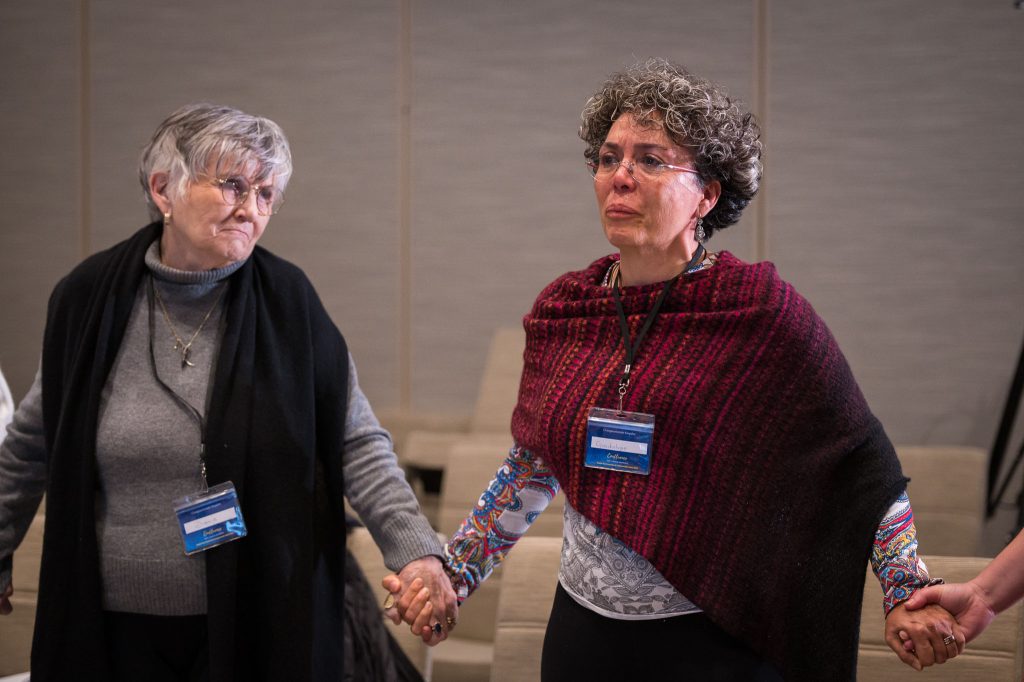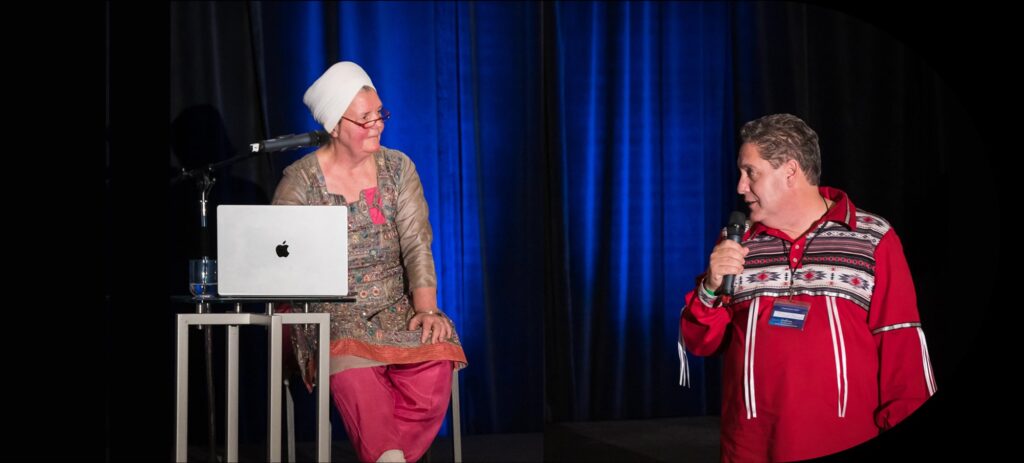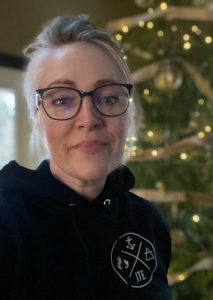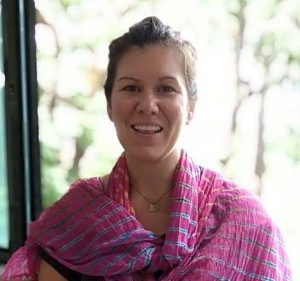Professional Training
September 2024 Cohort: Regular Applications due July 28, 2024; Subsidy applications due July 14, 2024.

Who is this course for?
Professionals already working with clients, whose scope of practice includes counseling, such as:
Mental Health Professionals
- Psychotherapists
- Psychologists
- Psychiatrists
- Addiction counsellors
- Social workers
- Counselling therapists
- Psychedelic integration therapists
Medical and Alternative Medicine Professionals
- Medical doctors
- Nurses
- Chiropractors
- Naturopathic physicians
- Nutritional consultants
Bodyworkers
- Massage therapists
- Physiotherapists
- Osteopaths
- Cranio-sacral therapists
- Fitness instructors
- Yoga therapists
- Reiki practitioners
People who help people
- Life coaches
- Educators
- First Nations counsellors and elders
- Traditional healers
- Meditation teachers
- Chaplains
- Allied health professionals
Note: The intensity of this program will be triggering for many, if not all participants, and will include an investigation of sometimes difficult emotional states originating in childhood. This program is designed to train therapists and health professionals, and is not meant to be a container for personal therapy.
Due to the depth of the work, we require that all participants be simultaneously engaged in regular personal therapy with a therapist of their choice. At least 12 therapy sessions a year, or one per month, are a requirement for course completion. Optionally, you could work with a CI practitioner at an additional cost.
If you are unsure if you qualify for this course, email us here.


Witness the CI Approach
Watch the recent live demo from March 2, 2024 with Sat Dharam.
Course Content
The Compassionate Inquiry Professional Online Training consists of eight modules. An outline and the learning objectives of each of the modules is provided below, followed by a description of the three Levels of the training for the Professional Program.
Module 1: Presence, Safety, Attunement
Outline:
- Origin of Compassionate Inquiry
- The Simplistic View
- The Purpose of Therapy
- Our Minds Create the World
- Three Levels of Knowledge
- Safety, Social Engagement and Learning
- Interpersonal Neuro-Biology
- The Power of the Group
- Who Are You as a Therapist?
- Cultivate Presence
- Attunement Is the Key
- The Approach of Compassionate Inquiry
- Compassionate Inquiry Stepping Stones
Learning Objectives:
- Reflect on the purpose of therapy and maintain a clear intention when working with clients.
- Notice how your mind and the minds of your clients create their world.
- Utilize all three levels of knowledge in the way you relate to your clients.
- Increase your capacity to create safety and openness in the therapeutic setting.
- Develop greater presence within yourself and within the therapeutic relationship.
- Refine your ability to attune to the client.
- Understand the Compassionate Inquiry approach, and begin to practice, using the skills and Stepping Stones.
- Become skilled at bringing yourself and the client into the present moment, and bringing attention to what is going on in the body.
Module 2: Triggers, Pain, Shame
Outline:
- Triggers and Emotional Pain
- Acceptance of Anger and Pain
- How to Handle Emotions
- Feelings vs Perceptions
- Be In Relationship to Feelings
- Understand Shame
- Create Space to Feel
- Find the Original Event
- Who Did You Talk To?
- Enhance Self-Awareness
Learning Objectives:
- Understand the nature of a trigger.
- Recognize your own triggers and use Compassionate Inquiry to process them.
- Acknowledge the pain that lies beneath anger.
- Create space to experience your emotions, investigate their origin, and express what needs expression.
- Differentiate a perception or interpretation, from a feeling or emotion.
- Understand shame and its origin.
- Develop self-awareness through a daily practice of your choice.
- In the therapeutic setting, offer space and attentiveness for the client to experience authentic grief, and to experience what’s happening for them in the moment.
Module 3: Trauma, Disconnection, Constriction
Outline:
- Ego and Essence
- What is Trauma?
- Trauma as Disconnection
- From States to Traits
- Sensitivity and Trauma
- Teaching About Trauma
- How to Ask About Trauma
- The Patriarchal Culture
- Trauma and Eating Disorders
- Socio-Cultural Trauma
- Trauma and Psychosis
- Epigenetics and Trauma
- PTSD
- False Memory Syndrome
- Perpetrators Know Who Is Vulnerable
- Set, Setting and Substances
- Trust Your Gut Feelings
- Voice, Verbal Language and Speech Patterns
- Reading Body Language and Breathing Patterns
- Recognize Defence Mechanisms
- The Power of Validation
Learning Objectives:
- Understand the difference between ego and essence.
- Understand the primary cause of trauma.
- Know and accept what happened to you as a child.
- Understand the relationship between trauma, coping strategies and the formation of the personality.
- Learn how to ask about trauma.
- Recognize the prevalence of socio-cultural trauma.
- Become more aware of your gut feelings.
- Increase your sensitivity to body language, and the speech and breathing patterns of yourself and clients.
Module 4: Attachment, Adaptation, Addiction
Outline:
- The Happy Childhood Challenge
- The Many Parts of Us
- Recognize Who Is Speaking
- The Roots of Addiction
- Parental Guilt
- The Genetic Link to Addiction
- Attachment vs Authenticity
- The Adaptive Purpose of a Behaviour
- Coping Mechanisms as Wounds to the Self
- Helping from the Wound vs. Helping Authentically
- The Importance of Curiosity
- The Therapist as a Mirror
Learning Objectives:
- Learn to identify when the inner child, mature adult or another part is showing up.
- Bring compassion to the inner child or other part as you relax judgement and understand it’s function.
- Understand the source of all addiction as arising from disconnection.
- Understand the survival needs of attachment and authenticity.
- Recognize the persistent coping mechanisms that you and others use to maintain attachment.
- Recognize mental-emotional and physical ailments as adaptations.
- Understand coping mechanisms as being wounds to the self.
- Know the difference between helping from an authentic place vs helping from a coping strategy.
- Become skilled at clarifying and mirroring your clients’ responses.
Module 5: Children, Family, Responsibility
Outline:
- Working with Children
- Involve the Family
- Put the Child’s Needs First
- Adopted Children
- Childhood Trauma
- Childhood Play
- See Your Children for Who they Are
- ADHD as a Coping Mechanism
- Healing is Within Everybody
- The Limitations of Diagnoses
- Borderline Personality Disorder
- You Are Responsible for the Way You Are Now
- Living in Separate Worlds
- Self-Disclosure and Inclusiveness
- Interrupting the Client’s Story
- Confidence in a Therapist
Learning Objectives:
- Understand the relationship between the early childhood environment and brain development.
- Recognize the importance of mutual responsiveness in adult-child relationships.
- Recognize the value and role of the empathetic witness for the child.
- See your children for who they are.
- Learn the connection between ADHD and lack of attunement.
- Know that the true self is never damaged or lost.
- Recognize that all diagnoses originate from coping mechanisms.
- Understand the challenges of borderline personality disorder.
- Encourage the mindset of taking 100 percent responsibility for your responses to people and situations.
- Build confidence as a therapist.
- Practice using appropriate self-disclosure.
- Become skilled at interrupting the client’s story and bringing them into their in-the-present self.
Module 6: Memory, Stories, Beliefs
Outline:
- Memory
- Explicit Memory
- Implicit Memory
- Preverbal Memory
- Somatic Memory
- The Body Knows All
- Unconscious Beliefs and their Origin
- Is It True?
- Shift Your Perspective
- The Use of Teaching Stories
- The Lesson In Judgement
- Soften Into Acceptance
Learning Objectives:
- Understand the difference between explicit and implicit memory.
- Recognize the ways in which implicit memory shows up, especially when you are triggered.
- Be aware of how memories reveal themselves in the body.
- Notice your judgements of self and others, and what stands in the way of acceptance.
- Pay attention to your internal body states and bring attention to tension.
- Develop the ability to make effective use of story-telling in sessions with your clients.
- Become aware of unconscious beliefs in yourself and your clients.
- Recognize how you and your clients create lives that fulfill your beliefs.
Module 7: Will, Compassion, Forgiveness
Outline:
- Diagnoses
- Will and Counterwill
- Working with the Super-Ego
- The Five Levels of Compassion
- Compassion Fatigue
- The Two-Way Valve
- Self-Compassion and Self-Care
- Who Is there to Forgive?
- It’s Not About Them
- How Are You Showing Up?
- Responsibility and Action
Learning Objectives:
- Understand counterwill and recognize when it is activated in yourself, your client or in relationship.
- Recognize the voice of the Super-Ego within yourself and in the client and develop a communication strategy with it.
- Notice self-judgement and replace it with self-compassion.
- Recognize when you are not being compassionate towards yourself and notice the disconnection that is present.
- Decide each day how you are going to show up.
- Practice Fierce Compassion towards yourself and your clients.
- Understand and embody the Five Levels of Compassion.
- Embrace the possibility of Radical Compassion.
- Practice daily self-care.
Module 8: Relationship, Possibility, Change
Outline:
- The Behavioural Approach to Therapy
- The Relational Approach to Therapy
- Be In Relationship with the Client’s True Self
- How to Work with Clients Who Don’t Want to Feel
- Willingness to Do the Work
- Working with Couples
- The Client-Therapist Relationship Is Like a Marriage
- Inquiry and Validation
- Holding Hope, Hitting Rock Bottom and Enabling
- See the Client for their Possibility
- Give the Client a Taste of Victory
- Change is Possible
- Engage in Play
- Express Gratitude
Learning Objectives:
- Understand the difference between the behavioural and relational approaches to therapy.
- Recognize the qualities in the relationship that you have with your clients that lead to a more positive therapeutic impact.
- Develop the awareness and ability to be in relationship with the client’s true self.
- Learn how to work with clients who don’t want to feel.
- Become skilled at creating a safe therapeutic container so the client can experience growth.
- Become more aware of what it is that you are able to teach the client.
- Recognize what is unconscious in you that the client is either responding to or activating.
- Practice seeing the possibility in the client and giving them a taste of victory.
- Practice expressing authentic gratitude during and after the therapy sessions.
Course Levels and Structure
Participants will cycle through the eight modules three times in the Professional Online Training, focussing on different elements of the course content during each cycle, integrating more fully, becoming fluent with the Skills and Stepping Stones, and progressing towards mastery.
The levels, and learning objectives of each, are outlined in detail below.
Level One: Self-Inquiry, Connection (18 weeks)
Learning Objectives:
- Establish safety in group
- Follow group guidelines
- Establish consistency in meetings
- Build group connection
- Build connection to self
- Become familiar with materials and content
- Become familiar with forms and assessment tools (video quizzes, competency forms)
- Learn to navigate website
- Become familiar with the Compassionate Inquiry Map
- Embody the Qualities of the Therapist in each module
- Begin the process of ongoing Self-inquiry
- Practice Skills and Stepping Stones from each module in dyads/triads
- Process material arising from course content and in dyads/triads and share experiences in larger bi-weekly group
- Explore the material further via regular Zoom meetings with Gabor, Sat Dharam and Facilitators
- Become engaged in international Facebook group and online community
Level Two: Skill-Building (16 weeks)
Learning Objectives:
- Deepen group connection
- Deepen understanding of material and content
- Utilize Case Study forms and assessment tools (video quizzes, competency forms)
- Complete Competency Form for each module
- Begin completion of 25 case study forms
- Internalize and utilize the Compassionate Inquiry Map
- Mature the Qualities of the Therapist in each module
- Become fluent in Skills and Stepping Stones from each module, continuing to practice in dyads/triads and with clients
- Process material arising in dyads/triads and share experiences in larger group
- Complete the Study and Practice Guide questions and discuss briefly in biweekly groups.
- Engage with the material further during any scheduled Zoom sessions with Gabor, Sat Dharam and Facilitators – submit questions.
- Foster dialogue in international Facebook group and online community
Level Three: Mastery (16 weeks)
Learning Objectives:
- Develop supportive, professional peer group, providing feedback and support.
- Demonstrate understanding of material and content, leading towards mastery.
- Complete 25 Case Study forms.
- Complete video quizzes, and competency forms.
- Complete Study and Practice Guide questions if incomplete.
- Complete any videos to submit for review.
- Complete Competency Form for self.
- Be fluent and spontaneous with the Compassionate Inquiry Map
- Express the 9 Qualities of the Therapist
- Demonstrate expertise in 22 Skills and 17 Stepping Stones, modelling your skills in dyads/triads with assessment from peers and small group facilitator.
- Engage with the material further during any scheduled Zoom sessions with Gabor, Sat Dharam and Facilitators
- Explore the possibility of further Compassionate Inquiry Mentorship, leading towards certification
- Consider 5 year plan of using Compassionate Inquiry professionally, and explore opportunities to expand Compassionate Inquiry globally
- Foster dialogue, establish relationships with international colleagues, and investigate research and networking possibilities through international Facebook group and online community via Compassionate Inquiry Focus Groups.
Course Creators

Dr. Gabor Maté is a retired physician, bestselling author, an internationally renowned speaker and the creator of the Compassionate Inquiry approach to psychotherapy.
Gabor evolved this therapeutic approach over 20 years of his personal journey, and from his work with patients in family practice, palliative care, and addiction. He developed his system further while facilitating integration workshops focused on healing trauma through the use of psychedelics.

Sat Dharam Kaur N.D. has supported Dr. Gabor Maté in structuring the Compassionate Inquiry approach and developing the online training.
Sat Dharam is a naturopathic doctor, teacher and author, who combines naturopathic medicine with Compassionate Inquiry, yoga, breathing practices and meditation to support others in healing and integrating mind, body and spirit.

What our past participants say…
Course Material


Meet the Facilitators
You will be working with one of our highly-skilled professional facilitators to help you on your journey in Compassionate Inquiry.
What are the Bi-Weekly Time Slots for the Professional Training?
To qualify for course completion, you must attend at least 22 out of 27 biweekly meetings.
- Online Facilitated Bi-Weekly Group = Approximately 18 people with one Facilitator at one of the times specified below (of your preference), meeting every two weeks for 1.5 hours at a scheduled time.

Your Commitment
The program only works, if you work on it! As part of this select group of individuals, you’ll be expected to:
- Attend 27 bi-weekly 90 minute Zoom group calls with your online facilitator and maintain at least 80% attendance
- Dedicate a minimum of 8 hours a week engaging with the material and practice
- Have a reliable internet connection with enough bandwidth for video
- Read the online course material pdfs and watch the videos of Dr. Gabor Maté teaching and modelling Compassionate Inquiry
- Complete the short quizzes for the videos in each module
- Attend weekly 60-90 minute skill-building sessions with your peers, practicing the elements of Compassionate Inquiry, for a total of 5O sessions or more within the year
- Be prepared for your bi-weekly group meeting by answering the home practice questions provided for each module
- Complete at least 25 case study forms
- Complete a comprehensive Competency Assessment Form for yourself
Course Fees
Regular Price
$3900 CAD
6 Monthly Payments
$683.33 CAD
10 Monthly Payments
$410 CAD
2 Monthly Payments
$1950 CAD
To convert to your local currency, click here.
Applications for the September 2024 Cohort
The Compassionate Inquiry Professional Online Training is an intensive graduate level certification program designed to enhance the skills and effectiveness of professionals already working with clients. Applicants must be professionals currently in practice so that the skills learned in this program can be applied and developed further throughout the year-long training. Applications are approved on a case-by-case basis.
The application is to confirm your eligibility. There is a $50 non-refundable application fee. Once your application has been accepted, you will be invited to register and pay for the full program. If you are applying for a subsidy, DO NOT fill out the Regular application below or pay the $50 fee until after you have been notified that a subsidy has been granted.
The September 2024 year-long training runs from Sept 16, 2024 – Oct 13, 2025.
Regular Applications are open until midnight ET of Sunday July 28, 2024.
You will receive a notice if you have been accepted by Thursday August 1, 2024 and will be asked to complete registration and payment by Sunday, August 18, 2024.
Subsidies
Please only apply for a subsidy if you:
- Would be unable to attend the program otherwise, due to financial constraint
- Are committed and capable of attending the program you are applying for
- Can pay the discounted rate for the course by the required date, in one payment
- Are currently seeing clients, and are a licensed health professional whose scope of practice includes counselling
- Subsidies are not transferable from one course to another, or from one person to another
Subsidy applications are now closed – due by midnight ET of Sunday July 14, 2024. You will be notified if you have been chosen to receive a subsidy by Wednesday July 17, 2024. Final registration and payment of the subsidy are due Sunday August 11, 2024.
FAQ
How do I know if I qualify for the Professional Training?
The CI Professional Online Training is targeted for professionals already working with clients, such as addiction counselors, psychotherapists, psychologists, medical doctors, naturopaths, life coaches, and other related fields, whose scope of practice includes counseling.
To Qualify for the Professional Training, the applicant must:
- Have a basic understanding, education, and experience in counselling therapy
- Due to the depth of the work, we require that all participants be simultaneously engaged in regular personal therapy with a therapist of their choice.
- At least 12 therapy sessions a year, or one per month, are a requirement for course completion.
Upon completion of the CI Professional Training, in preparation to certify as a Compassionate Inquiry Practitioner, the applicant must:
- Have completed at least a 200 hr accredited program in any allied health profession plus at least 50 hours of training in basic counselling skills. Examples of such training are a short Life Coach Certification training, Addictions Counseling, or formal University studies at a Masters level.
- Be registered with a professional regulatory body that includes counselling or coaching within its scope of practice, and that provides you with a membership number and a code of ethics to abide by.
- Complete the 6-Month CI Mentorship Program and be recommended for certification by their CI Mentor(s).
Other less rigorous Compassionate Inquiry programs are also available, which include:
What should be in my Resume or Letter of Recommendation? Does it need to be in English?
Your letter of recommendation and Resume should be in English.
Please include on your resume, any education and professional experience that is related to the field of counseling or working with people.
Your letter of recommendation must be from a professional who you have worked with or had close contact with for two years or more. The letter should include why you are a good fit to take this training, communicating your capacity in dealing with patients, your experience and accomplishments in the field, as well as personal characteristics that could support this journey.
Examples of professionals who can write your Letter of Recommendation:
- Psychotherapists
- Mental health professionals
- Health care professionals
- Allied health professionals
- Medical doctors
- Naturopathic physicians
- Fitness and life coaches
- Addiction counsellors
- Plant medicine shamans
- Social workers
- Yoga therapists
- Meditation teachers
- Educators
- First Nations counsellors and elders
- Traditional healers
- Psychedelic integration therapists
What are the Bi-Weekly Time Slots for the Professional Training?
To qualify for course completion, you must attend at least 22 out of 27 biweekly meetings.
- Online Facilitated Bi-Weekly Group = Approximately 18 people with one Facilitator at one of the times specified below (of your preference), meeting every two weeks for 1.5 hours at a scheduled time.

What Continuing Education (CE) Credits are available?
For Canadians:
Psychologists:
- Compassionate Inquiry Inc is approved by the Canadian Psychological Association to offer continuing education for psychologists. The training is approved for 240 CE Credits
- Compassionate Inquiry Inc maintains responsibility for the program.
Psychotherapists:
- The Canadian Counselling and Psychotherapy Association (CCPA) has approved the Compassionate Inquiry Professional Online Program for 240 CE Credits. Download this CCPA CE Form
Health Coaches:
- Health Coach Alliance welcomes the Compassionate Inquiry Professional Online Program as an approved CEC Provider
- Attendants of the program will be awarded 40 continuing education credits upon completion and successfully passing the quizzes in the training. Proof of course completion will be required for members to obtain credits
For those in the US:
The cost for those who would like to receive CE Credits in the US is $150 CAD. You will be given a link for this option when you finish the training.
Information on Continuing Education Credit for Health Professionals
- CE credits for psychologists are provided by the Spiritual Competency Academy (SCA) which is co-sponsoring this program. The Spiritual Competency Academy is approved by the American Psychological Association to sponsor continuing education for psychologists. SCA maintains responsibility for this program and its content
- The California Board of Behavioural Sciences accepts CE credits for LCSW, LPCC, LEP, and LMFT license renewal for programs offered by approved sponsors of CE by the American Psychological Association
- LCSW, LPCC, LEP, and LMFTs, and other mental health professionals from states other than California need to check with their state licensing board as to whether or not they accept programs offered by approved sponsors of CE by the American Psychological Association
- SCA is approved by the California Board of Registered Nursing (BRN Provider CEP16887) for licensed nurses in California. RNs must retain this document for 4 years after the course concludes
- SCA is an approved CE provider for National Board Certified Health and Wellness Coaches (CEP Number 100196)
- For questions about receiving your Certificate of Attendance, contact Gabriel Olivella at gabriel@compassionateinquiry.com
- For questions about CE, contact Spiritual Competency Academy at info@spiritualcompetencyacademy.com
What are the Course Completion Requirements for the Professional Training?
| Course Component | Course Completion |
| Read pdfs of Gabor’s Teachings, Practice, and Conversations | Complete |
| Watch all videos of Gabor’s Teachings, Practice, and Conversations | Complete |
| Quiz – Gabor’s Teachings | Complete quiz for each module, pass with 80% |
| Quiz – Conversations | Complete quiz for each module, pass with 80% |
| Study and Practice Guide Answers | Complete written questions for each module |
| Biweekly Group Attendance | Attend 22 out of 27 |
| Triad/Dyad Sessions | Attend at least 50 |
| Case Studies | Complete and submit 25 |
| Submit Videos | Optional, to receive feedback during biweekly meetings in L2 or for L2 Cohort Video Review |
| Zoom Calls with Gabor | Attend or watch recording of each call |
| Competency Forms | Fill out 1 for Self |
| Documentation of Personal Therapy | 12 sessions minimum |
| Practicum in Level 3 | Demonstrate CI proficiency in at least 1 practicum in L3 |
| Feedback Forms | Fill out form for each module at least once |
| Long Course Feedback Form at end of Level 3 | Complete at end of course |
| Liability Insurance | Not required |
| Extra Fee | Not required |
| Certificate | Course Completion certificate |
What are the steps to certify as a Compassionate Inquiry Practitioner?
The CI year-long Professional Online Training is the first step towards becoming a certified Practitioner.
Upon completing the year-long Professional Training, participants must next complete the 6-Month CI Mentorship Program and be recommended for certification by their CI Mentor(s).
To register for the Mentorship Program, the applicant must:
- Have completed all course requirements in the Professional Training and received a certificate of completion
- Have completed at least a 200 hr accredited program in any allied health profession plus at least 50 hours of training in basic counselling skills. Examples of such training are a short Life Coach Certification training, Addictions Counseling, or formal University studies at a Masters level.
- Be registered with a professional regulatory body that includes counselling or coaching within its scope of practice, and that provides you with a membership number and a code of ethics to abide by.





















